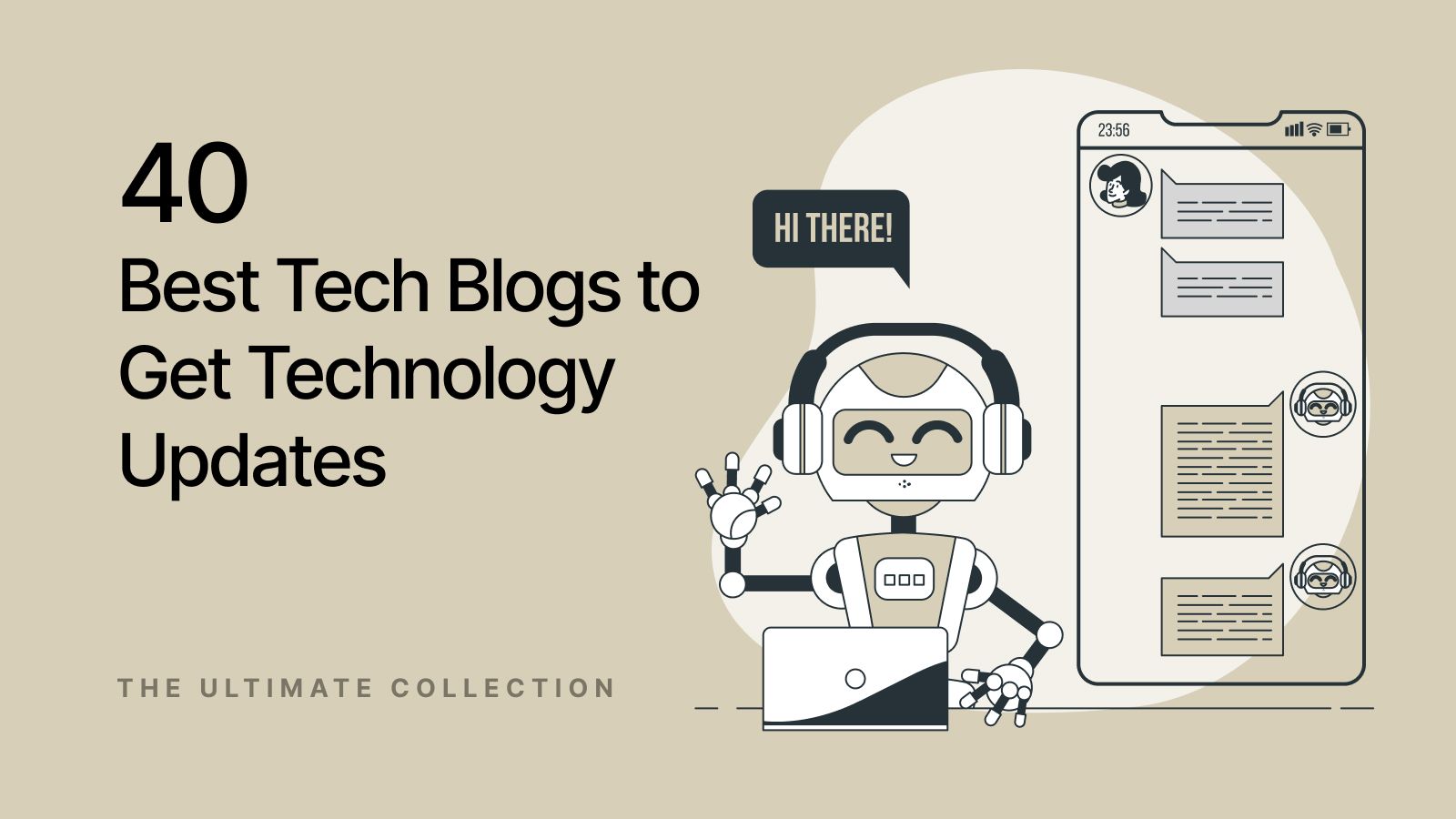Leading Factors to Follow the Best tech blog for Tech News and Tutorials
Leading Factors to Follow the Best tech blog for Tech News and Tutorials
Blog Article
Exactly How Blockchain Innovation Is Revolutionizing Data Safety And Security
Blockchain innovation is essentially modifying the landscape of information security by introducing a decentralized framework that assures boosted openness and durability. Unlike standard systems, which count on centralized information databases, blockchain distributes information across a network, decreasing vulnerabilities and solitary factors of failure. Using advanced cryptographic strategies ensures that data continues to be tamper-proof, cultivating depend on among customers and stakeholders. As industries quickly adapt to this technology, concerns arise concerning its wider effect and prospective difficulties. What implications does this shift hold for future information protection strategies and governing structures? The responses might surprise you (Best tech blog).
The Fundamentals of Blockchain
Blockchain innovation, a revolutionary idea in digital information monitoring, fundamentally changes how details is stored and safeguarded. At its core, a blockchain is a dispersed ledger that tape-records purchases across a network of computer systems, making certain transparency and immutability. The innovation operates on a chain of blocks, each consisting of a checklist of purchases. When a block is loaded, it is time-stamped and linked to the previous block, creating a chronological chain.
Secret to recognizing blockchain is the hashing procedure, which secures transaction data into a special alphanumeric code. This cryptographic function ensures that any alteration in the purchase information leads to a totally various hash, therefore guarding against tampering. The agreement mechanism, another crucial element, verifies and validates new deals with a network of nodes, thereby getting rid of the requirement for a centralized authority.
Furthermore, blockchain's append-only structure ensures that data, once included, can not be erased or altered. This particular guarantees a long-term and verifiable document of transactions, cultivating trust amongst individuals. Therefore, blockchain provides a durable structure for data stability, using markets a trustworthy method for tracking and managing digital information in a safe and secure, clear way.
Decentralization and Safety
Decentralization, a core principle of blockchain technology, considerably enhances information security by distributing control throughout a network as opposed to depending on a single, centralized entity. This circulation mitigates the risk of single points of failing, which are widespread in typical central systems. By spreading data across countless nodes, blockchain ensures that even if one node is compromised, the entire network remains secure. This redundancy not just fortifies the honesty of the data however additionally increases its durability to cyberattacks and system failings.

Moreover, decentralization empowers individuals with better control over their information. Each participant in the network has access to the entire blockchain, permitting them to confirm and audit transactions individually. This openness promotes trust fund amongst users, as they do not have to depend on a central authority to make sure information honesty. Generally, decentralization contributes in boosting data safety and security in blockchain networks.

Cryptographic Techniques
At the heart of blockchain innovation, cryptographic methods play a pivotal duty in protecting information, guaranteeing both privacy and honesty. These methods are foundational to the blockchain's capability to securely tape-record transactions in a decentralized manner. Cryptography in blockchain uses a mix of crooked and symmetrical algorithms to encrypt data, making it easily accessible only to licensed events - Best tech blog. Public and personal essential pairs are main to this procedure, enabling safe and secure authentication and identification verification without disclosing delicate details.
Hash functions are one more important part, changing input data into a fixed-size string of personalities, efficiently producing an one-of-a-kind digital finger print for each and every block. This makes certain that any attempt to alter the information will certainly cause a completely various hash, thus keeping the immutability of the blockchain. Additionally, digital signatures validate the credibility and integrity of purchases, supplying a layer of non-repudiation.
The decentralized nature check my source of blockchain, integrated with robust cryptographic techniques, eliminates the demand for intermediaries, lowering potential susceptabilities. As blockchain modern technology evolves, innovations in cryptography such as zero-knowledge proofs and homomorphic security remain to enhance security procedures, even more strengthening information protection in this revolutionary electronic journal system.
Use Situations Throughout Industries

In the health care industry, blockchain ensures the safe storage and sharing of patient records, advertising interoperability while protecting delicate data from unapproved access. This modern technology equips people with control over their medical background and promotes seamless control amongst medical care carriers.
Supply chain monitoring advantages considerably from blockchain's unalterable journal, which makes certain traceability and credibility of products from beginning to consumer. By enhancing openness, blockchain assists reduce issues such as counterfeiting and unethical sourcing.
Furthermore, blockchain's decentralized nature is reshaping the energy field by enabling peer-to-peer energy trading, where customers can deal excess sustainable energy straight. This cultivates a more reliable and lasting power ecological community.
In the world of intellectual home, blockchain gives a tamper-proof system for developers to register and secure their works, ensuring rightful attribution and reasonable settlement. These diverse usage instances underscore blockchain's role as a crucial force in redefining information protection across sectors.
Future of Data Defense
As we aim to the future of information defense, blockchain innovation is poised to play an essential role in protecting digital information. With its decentralized and unalterable characteristics, blockchain uses a durable framework for protecting delicate data against unauthorized access and cyber dangers. This modern technology makes sure that check my reference as soon as data is recorded, it is virtually difficult to modify without discovery, thus giving a significant benefit over traditional information storage space techniques.
The assimilation like this of blockchain with other advanced technologies, such as expert system and the Internet of Things (IoT), is anticipated to improve information protection methods further. By leveraging wise agreements, organizations can implement and automate safety and security methods, minimizing human error and increasing effectiveness. Furthermore, blockchain's capability to offer transparent and traceable purchases will boost count on and liability in data management practices.
As governing landscapes evolve, blockchain's compliance-friendly nature will come to be significantly appropriate. It can assist companies meet rigorous data security policies, such as the General Information Defense Policy (GDPR) and the California Consumer Personal Privacy Act (CCPA), by offering verifiable records of data processing activities. Eventually, blockchain's special characteristics placement it as a transformative device in the recurring quest to secure the digital world versus ever-evolving cyber risks.
Final Thought
Blockchain innovation stands for a paradigm change in information security by leveraging decentralization and cryptographic strategies to enhance openness, trust, and information integrity. As cyber threats evolve, blockchain emerges as a crucial device for robust data defense across different sectors.
Blockchain modern technology is essentially modifying the landscape of data security by presenting a decentralized structure that promises enhanced openness and strength. Unlike typical systems, which depend on centralized information databases, blockchain distributes information across a network, minimizing vulnerabilities and solitary factors of failure.Decentralization, a core concept of blockchain innovation, significantly enhances information safety by dispersing control across a network rather than relying on a particular, centralized entity.At the heart of blockchain innovation, cryptographic strategies play a pivotal duty in protecting data, ensuring both confidentiality and honesty.Blockchain innovation stands for a standard change in information protection by leveraging decentralization and cryptographic methods to improve transparency, trust, and data stability.
Report this page